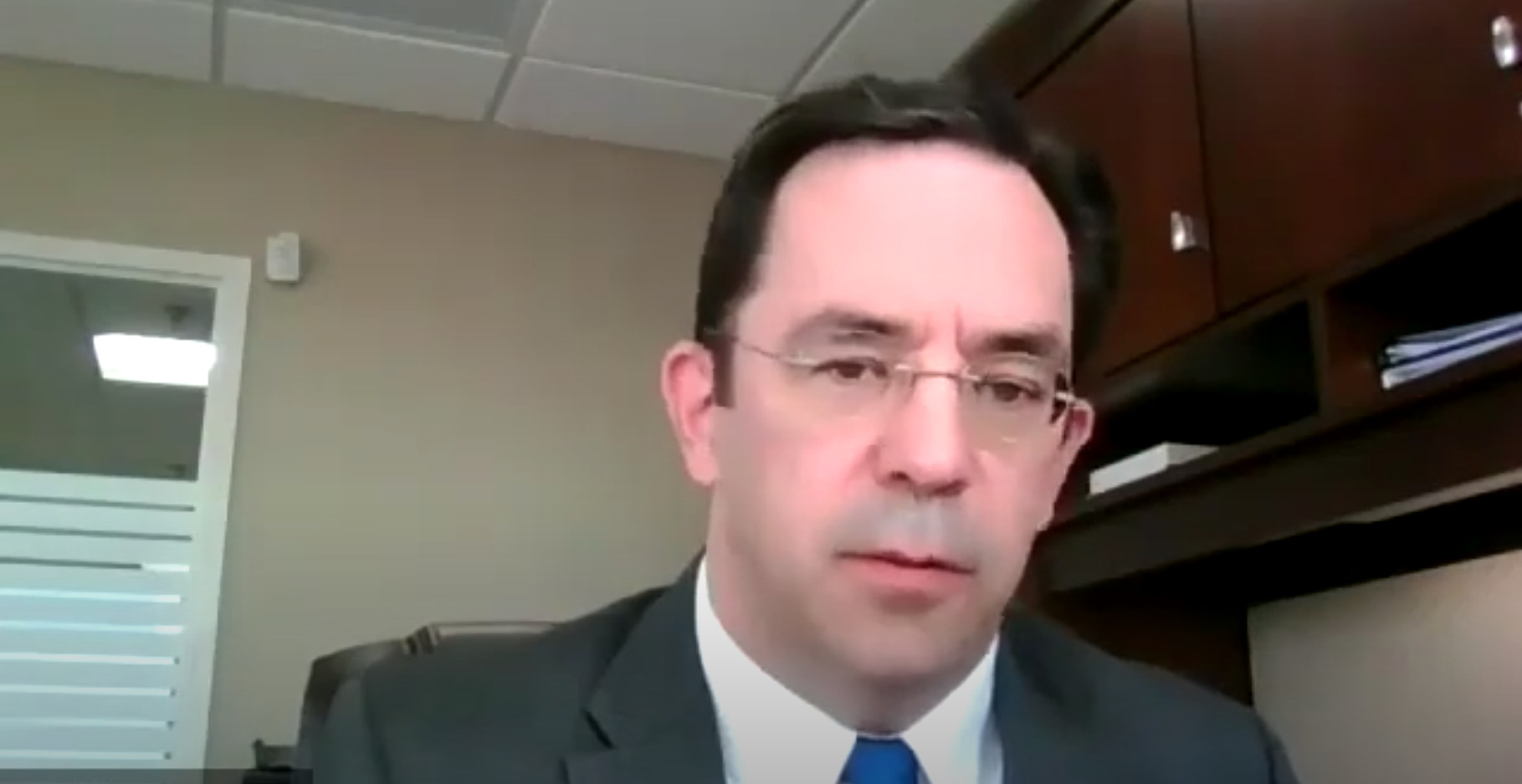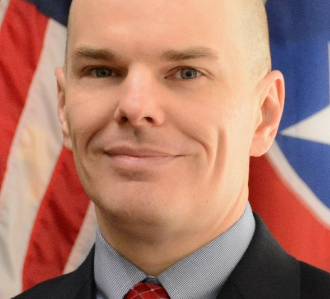
The TFRL, Tennessee financial responsibility law of 1977, is used to prosecute people who are not subject to it because they have not had a qualifying accident under T.C.A 55-12-104 et seq. My lawsuit seeks to prevent half a million such arrests of these from occurring statewide in the next five years. (Photos Chattanoogan.com “latest arrests”)
CAMILLE CLINE *** We do not see the petitioner’s entitlement to depose our commissioner. *** Courts commonly prohibit these depositions as either presenting an undue burden or being beyond the scope of discovery. So in keeping with this precedent, as the petitioner has now moved to compel the Commissioner’s deposition, we would respectfully request that the administrative judge and an order quashing the notice of decision – or in the alternative, limiting the scope of discovery such that depositions of the commissioner and senior staffers are not on the table. *****
BRAD BUCHANAN, ADMINISTRATIVE JUDGE Thank you, Miss Cline. Mr. Tulis, would you like to respond?
CHATTANOOGA, Tenn., Tuesday, Nov. 21, 2023 [PHONE HEARING with department of revenue in David Jonathan Tulis v. commissioner of revenue] DAVID TULIS Yes, Mrs. Cline, thank you very much. That’s very helpful to hear you discuss that. I really appreciate it.
Well, again, I don’t want to repeat or even make reference to the brief, Mr. Buchanan, that you’ve read. But, No. 1, I would say for deposition why I have a right to depose him is that he is the moving party in every revocation. And I go into detail on the law [TCA § 55-12-] 104, 114, 118, 127, 124. So, as a matter of law, he’s the moving party. He’s involved in 24,338 convictions a year — that was the 2022 figure. And there are 1.025 million unconfirmed registered cars without insurance on the road. So that’s a lot of people. And he is bound by the doctrine of respondeat superior, “Let the head speak.”
I’m not gonna ask to speak to some flunky. The man in the man who’s revoked my registration — named so in the statute — has to be able to account for it and as he does upon thousands of other people. It is a — this, this case, Mr. Buchanan, is, I would say — it’s a comprehensive attack on a mass fraud. And he has a duty to let me ask him about the facts.
I do not agree [with Mrs. Cline] that I would be hectoring him about legal conclusions. I know that a deposition has to be about facts, that’s what this objection and motion to compel or are about.

David Gerregano runs a tax policy that ignores most of the Tennessee financial responsibility act of 1977. (Photo TN department of revenue)
As for his importance, his high, high status — “the apex figure,” as Miss Camille says— I would say that this case is the first challenge to a scam that’s at least six years old. And I would ask about the larger context of this petition. And that would be how many days in jail, how many hours in court, how many dollars in impound and towing fees, how many blighted records, Mr. Buchanan, how much fear and dread — how many tens of thousands of people have been affected— how much, how many — how do you count those, those figures needed to get the answers and the explanation on the facts of this case?
Again, deposition is about facts.
As for his precious time, Mr. Buchanan, I would say that the time devoted to the facts of this case would be 1% of the time that he would do in preparing, and 99% on the department operations. This case is typical of all these cases, and the only difference is the name, the VIN, the address and the make and model. That’s it. Otherwise, he needs to know what’s going on in his department.
So, No. 3, I would say that his importance is all the more reason that he should be deposed to sit down vis a vis the victim. And he is involved, as I’ve alluded to in the 39-16-402 violations – that’s official misconduct – and also 39-16-43. That’s official oppression. That’s what’s happening in this case.

Brad Buchanan, chief hearing officer Tennessee department of revenue
This case is part of the reckoning that’s due to me.And it’s also part of the reckoning that the people of this state are due – and I would say they’re overdue. So I have, I have from the beginning represented the law itself. That’s 55-12-101 et seq. And I’m upholding the law and the man responsible has a duty – and I have a right in that duty – to draw out all the facts and having standing to investigate irregularities – by questioning, deposition, by admissions and denials. And I’m – what’s happening in this case highlights something that’s impeachable to Gov. Lee and it’s indictable to Commissioner Gerregano.
And so the argument No. 4 that I made allusion to is the complete record requirement under the Uniform Administrative Procedures Act. I have to set all the boundaries of the data in this case here in your court, Mr. Buchanan. And so I have a duty to exhaust these remedies. The record that goes up will be based – and it can’t be – it can’t be amended unless there’s an order from Chancery that something be done differently than what than what you allow.
So in the administrative hearing all the facts must be established there, and the testimony from the commissioner, I believe, will show that there are facts of policy. Now, and I wanna put into your ear the points that I don’t know if they come out in my brief, in my in my motion on this.
But policy is very fact rich. With law – law doesn’t have a lot of facts generated? But policy does. And so my question to him on the facts, a very restrained line of questioning of him on the facts, would be: Where, where does the law operate in your part of your business as the Commissioner. And what part is, I would ask, are violative of law under the rules of statutory construction.
So testimony may uncover other vital facts that are not seen by simply studying the law as I’ve done or facts that I’ve discerned by looking at the website and so on.
There are facts among the staff. That would come out with with an inquiry to the principal. Testimony may convince *** the court that it *** take courage effectively to move to junk the program.
That’s what I’m shooting for. Junking this program. Supportive relevant facts will aid my analysis when I brief it in this case about the breach facts, great and small. They’re under my right to get under the rules of Civil Procedure and the UAPA, and that will make more secure the findings of law.
So the facts will help the finding of law, though perhaps they may not be dispositive, but they may be persuasive and assist.
So the record, Mr. Buchanan, that I have to establish here by duty – and I have a right to establish it – includes the facts about policy.
So policy is, I’m suggesting, is very fact rich. It’s fact intensive. The law operates with little friction. It doesn’t throw off a lot of facts. But when you have an arbitrary program that rejects many of the provisions of the law – such as the exceptions provision #11 – that clearly means there’s no case here – it’s fact rich.
So how is it these people come up with this program? You have all kinds of actors. You have people who’ve had meetings who decided, well, we’re – here’s how we’re gonna work around the law. Here are the hacks. You know, facts, facts are to be found in the Band-Aid operation of this program and they’re also called cludges. You can say they’re field innovations. They’re rationalizations, they’re justifications.
And these are in writing and they come from people who are making this thing happen. So policy, Mr. Buchanan, against law has forms and customs. It has usages that are not in the law.
But they’re in people. They’re in the people subject to discovery and the doings of people.
That would be emails, meeting notes, non-privileged communications, fact-rich testimony that ferrets out other facts behind the facts that I get initially. So if I start with commissioner, that’s probably gonna satisfy what I need in the way of facts. With fraud, Mr. Buchanan, fraud is fact based. The rules allow the petitioner to query into it to discover the evidence, to persuade the court, the judge, the administrative officer, to secure, for the purpose of securing my registration, getting that back – and also major reform.
There’s major reform that is in the public interest that needs to happen from you, starting with you. So facts lead to other facts and they let the petitioner make his case.
And then finally the last point that I wanna make, sir, trying to be brief, and it’s this. That the notice of my deposition of the commissioner is in his favor, is doing him a favor. And here’s why I think that that’s a valid point to not – not exclude from your consideration. Because I’m forcing him to examine my claims.
I’m wanting him to see how bad the situation is. He’s an attorney. He can immediately see that there’s a problem. Forcing him to ask factual questions about the program will let him – and reading my filings and my brief will show him – that I’m on to something so he can dive into this scandal now.
This petition empowers the court to help him to fix the problem while it’s still in the agency. This is known by nobody in the world except the people here – I mean the people listening to this, you and Miss Cline. You’re the only people who know about it.
So I think he needs to handle this himself, and that would be better than the Court of Appeals handling for him or the 6th Circuit. I have to get my registration back and I’m gonna get it back because the law is being respected. He’s under in the initial filing in this case my administrative notice. So he’s personally liable under the “knowing and intentional” elements of oppression in the *** oppression statute, he’s personally aware and doing everything from the day he got that to today. And he’s doing it knowingly and intentionally.
And that’s not, that’s not a position he needs to be riding in for a long time. He needs to get, he needs to get real. So it’s time for him to face up to this machinery that’s working quietly without him having noticed it. He’s never given a thought to this, to this problem. He’s never thought about it. He’s never given the slightest attention to the EIVS gang of 18 in that office. They’ve never come to his attention one time because it’s a smooth operation.
But this case is gonna force him one way or the other to get real and I’d like to ask Miss Cline, is this case on his schedule? Has it come to this notice? Does he know what’s going on? Does he know what the law is saying about what he’s doing? That’s the question I just throw out for your consideration. Mr. Buchanan, and Miss Cline. ’’

